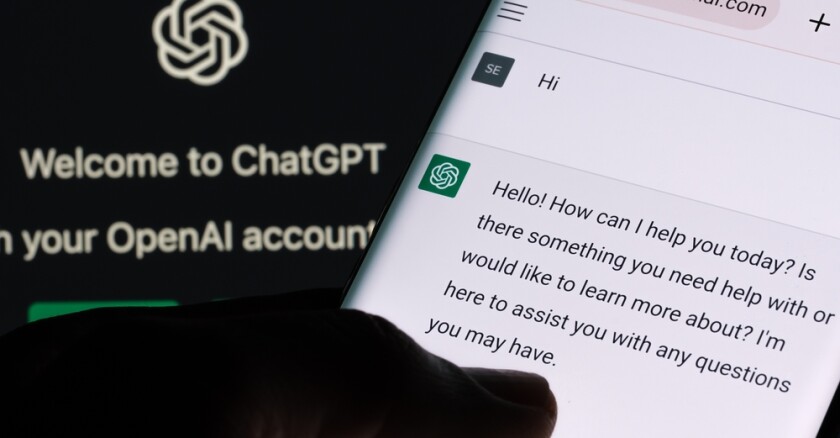Open-source AI websites such as ChatGPT can help writers of all ages speed up their work. But artificial intelligence is also capable of writing an entire essay for students from elementary school all the way up to the doctorate level.
Locally, District Literacy Coordinator Tom Abrams said no teachers from Newburyport Public Schools reported any AI concerns to him back in January. But by mid-May, the district had caught roughly eight students using the technology to help them game the system by writing essays, or doing other work for them.
"It's amazing how quickly things change. It's becoming ubiquitous in the classrooms," he said. "I still believe our students value creativity and my gut tells me these other kids were looking for a quick shortcut."
Abrams, an English teacher, said AI is adaptable enough to learn a student's voice as a writer. He also said he's making sure his teachers have good relationships with their students since that is the best way to combat current technological temptations.
"We do a lot of writing workshop models where students are composing in front of you as you assist them and offer individualized instruction," he said. "That helps to mitigate the chance the kid is going to use the AI technology."
Knowing students well is the key to escaping potential AI interference, according to Superintendent Sean Gallagher. He said that means doing more classwork with students and working with them on their writing, rather than sending them home and telling them their term paper is due in a month.
"We want to make sure it's their writing and their revisions that are happening in the classroom, that means a lot more check-ins and working one-on-one with our students," he said.
Teachers know their students' strengths and their weaknesses, and will be able to better monitor the negativity of AI, Gallagher said.
"We're well aware that you can punch in a few things and you're going to have this beautiful essay," he said. "But this is about personal relationships in the classroom and understanding the learning styles of our students. That way, it's easier to spot a 10-page paper that has been written by a computer versus the student."
New technology offers pros and cons, Gallagher stressed, meaning that teachers should not ignore it, but instead embrace the changing educational landscape.
"It's a balancing act and it's not only AI," he said. "You also have augmented reality, virtual reality, and mixed reality and jobs around those four areas are up 1,400 percent. We want our students ready for college and career readiness, and this is going to be a big job market. These students are going to be dealing with this in their everyday life moving forward. So we need to know the ethical uses of this technology and encourage the students to use it in the classroom."
Across the river in Amesbury, School Superintendent Elizabeth McAndrews said in a text message that she has concerns similar to Gallagher's. She is encouraging her teachers to use AI as a learning resource.
Triton Regional School District Superintendent Brian Forget said in a text message that apps such as ChatGPT are "just the beginning of the ways AI is infiltrating everything we do and our new norm."
Forget added that he has been working with the district's director of technology, Greg Kulowiec, about how to teach students to use AI as a tool, particularly at the high school.
"Since we can't slow the development down, we've only just begun," he said.
Gallagher pointed to how quickly the district instituted remote learning during the COVID-19 pandemic as an example of how quickly teachers can adapt to an evolving situation, such as the rise of AI.
"I don't think you can shut it down. You want to incorporate it within the curriculum, wherever you can. But this is still uncharted territory that's very similar to the time when the Internet came about," he said. "Schools had to adjust and be flexible then and eventually we developed reliable resources. I see similar strategies as we move forward with AI."
Teachers are adaptable by nature, according to Abrams, who said a cooking class could encourage students to use AI to come up with a keto-friendly menu, while spending more valuable time teaching how to cook it.
"We make a thousand choices a day and the pandemic has helped us to become even more adaptable," he said. "We should embrace some of this stuff when we can and use it in a positive way."
©2023 The Daily News of Newburyport (Newburyport, Mass.). Distributed by Tribune Content Agency, LLC.















